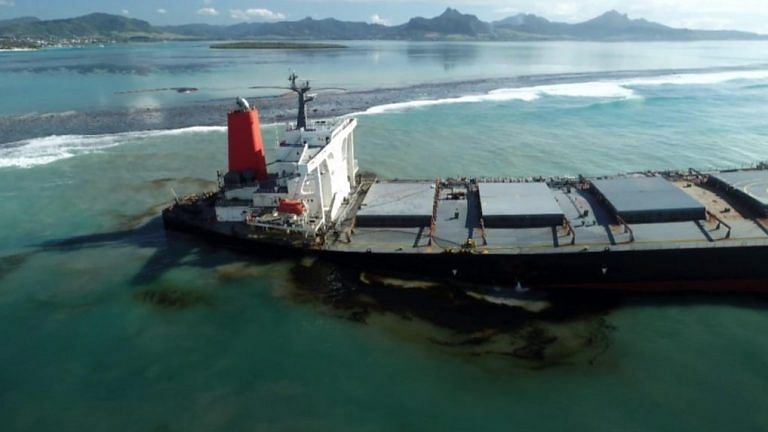For many, Huntington Beach, California is better known as Surf City. But in early October, there wasn’t a wetsuit in sight, as miles of beaches were closed by a major oil slick just off the coast.
An oil pipeline leak left toxic crude oil along beaches and contaminated critical marsh and wetland habitats. Dead fish and birds washed up on the sand, with the local mayor calling the slick an “environmental catastrophe”.
The California Department of Justice is investigating the spill, which, in the worst-case scenario, is estimated to have been more than 131,000 gallons, according to CNN.
Beaches reopened on 11 October, only after the clean-up operation could produce tests showing “non-detectable amounts of oil-associated toxins” in the ocean water.
It is too early to tell the full extent of the oil spill’s impact, although the Oiled Wildlife Care Network have already reported 45 dead birds and nine dead fish.
Environmental experts are warning that the damage will be long-term, and in some cases possibly irreparable.
So, why are oil spills so bad for the environment?
Also read: Fish are getting addicted to meth as illegal drugs pollute water bodies, study finds
Sea life in danger
In the immediate aftermath of an oil disaster, the effects on fish, sea birds, and other marine animals are often very visible. Coated in oil, animals can be killed by poisoning or suffocation.
Those living close to or on the surface, like sea birds and otters, or those who come to the surface to breathe or feed, like whales, dolphins and turtles, can be among those most affected.
Oil-drenched feathers and fur can adversely affect animals’ ability to regulate their body temperatures. It can also affect natural buoyancy, causing animals to drown. And because birds like to preen themselves, they are highly likely to ingest the oil, potentially causing damage to their gastrointestinal tract, as well as organ damage.
Fumes from more volatile petroleum products like kerosene or jet fuel can be harmful to lungs when inhaled, while also causing burns, eye irritation and neurological issues.
Disrupting ecosystems
Oil can also affect food sources for sealife, making it less available or of poorer quality, so even animals that survive the initial environmental hazards may still suffer in the weeks and months following the leak.
Moreover, oil impacts breeding and reproduction, for example contaminating bird or turtle nests on shore, affecting viability, and suffocating unhatched chicks. Females affected by oil may lay eggs with thinner shells, more prone to breaking.
The recovery from the Huntington spill is likely to be uneven, fisheries biologist and marine ecologist Steve Murawski told the Guardian.
Alongside birds and marine mammals which will be harmed – especially those that live along southern California’s offshore islands or coastal wetlands – populations of smaller creatures like plankton are also likely to be hit.
Because of their fast lifecycle, plankton are likely to bounce back quicker than “the longer alive and the slower growing things, like abalone and other things that can’t get out of the way”.
Also read: By 2050 there may be more plastic than fish in the sea. This 10-step plan can change that
The long-term effects
In 2010, the Deepwater Horizon slick in the Gulf of Mexico became the largest ever marine oil spill in US history, with more than 134 million gallons of oil spilling into the ocean. More than a decade on, scientists have shown the impact is far longer lasting than many expected.
In the summer after the slick, oil levels along the miles of affected coastline were found to be 100 times higher than background levels. But eight years on, levels in the sediments in the surrounding marshland were still 10 times higher than prior to the accident.
Research shows that droplets continued to sink to the seabed even a year after the spill ended. It affected sedimentation rates – a crucial food source and habitat for some animals. For many deep sea creatures, living among the sediment surface, recovery could take decades.
A study on bottlenose dolphins exposed during the Deepwater Horizon event has shown that the oil may have had an effect on their immune system that spanned generations, making it harder for them to fight off infection and disease.
Restoration is a time-consuming and costly process, but ensures that ecosystems are protected.
In September, the Deepwater Horizon Regionwide Trustee Implementation Group finalized an almost $100 million restoration plan, which includes 11 projects to restore sea turtles, marine mammals, oysters, and birds across the Gulf states and offshore waters.
This article was originally published in the World Economic Forum.
Also read: Taking the lead on climate action could be worth $11 trillion to India
